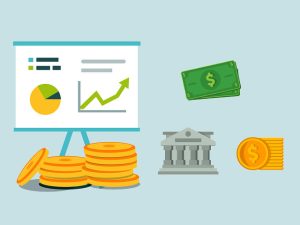
Global economic growth is projected to hover around 3.2 % in 2025 according to the International Monetary Fund, while the World Bank sees even more subdued figures in many regions. IMF forecasts show inflation easing, yet it remains a central concern for policymakers worldwide. Large-scale investments in artificial intelligence are helping cushion advanced economies against sharper slowdowns.
Growth Projections and Regional Differences
Global growth is slated to decelerate slightly to about 3.2 % in 2025 and 3.1 % in 2026. Advanced economies are forecast at around 1.5 %, while emerging markets may post just over 4 %. The World Bank projects certain developing regions will see slower growth—some as low as 2.3 % in Latin America, or 4‑5 % in parts of Asia. These numbers show that growth is modest, well below the pre-pandemic pace but not weak enough to trigger a global recession.
Inflation, Monetary Policy and Central-Bank Credibility
Inflation is expected to come down, but still remains elevated in many places. The IMF projects headline inflation at around 4.2 % in 2025 with a further drop to around 3.6 % in 2026. Central banks face the challenge of sustaining credibility while supporting growth. If inflation stays stubborn, rate cuts may be delayed or reversed, raising risks for financial stability.
Key Risks: Trade Tensions and Policy Uncertainty
Trade barriers and policy uncertainty pose major downside risks to the outlook. The World Bank highlights that escalating trade restrictions and opaque policy frameworks have forced a downward revision in many regional charts. The IMF warns that uncertainty around tariffs, central-bank independence, and fiscal policy could derail even modest growth.
- Tariff disputes between large economies may disrupt supply chains.
- Central-bank actions may be constrained by inflation expectations and fiscal pressures.
- Investment may be delayed due to the risk of regulatory or geopolitical shocks.
Opportunities: AI and Technology Investment
Despite headwinds, large investments in AI are offering a boost to advanced economies. Some firms and countries are adopting AI technologies at scale, supporting productivity, investment, and business dynamism. Growth may be uneven, but businesses leaning into digital transformation may see larger gains even in a slow-growth environment.
What It Means for Businesses and Investors
- For businesses: Focus on operational efficiency, resilience to supply-chain disruptions, and selective expansion.
- For investors: Moderate growth suggests more modest returns, with elevated cyclical risks.
- For policymakers: Transparent trade policies, credible monetary frameworks, and targeted technology investments are crucial.
Conclusion
The global economy in 2025 is set for a modest pace of growth. Inflation is easing but remains a concern. Trade tensions and policy uncertainty cast shadows. Pockets of strength driven by technology investment offer hope. Success will depend heavily on how governments and firms navigate uncertainty and focus on emerging value opportunities.

 Economic Growth Slows
Economic Growth Slows


 Used cars can be a great way to save money but come with risks. Without the right information, buying a used vehicle could lead to hidden costs, such as expensive repairs or overpaying for a car. Auction platforms like Herolot offer valuable data to help you make informed decisions. By understanding vehicle sales history, damage reports, and pricing trends, you can avoid scams and save a lot of money in the process.
Used cars can be a great way to save money but come with risks. Without the right information, buying a used vehicle could lead to hidden costs, such as expensive repairs or overpaying for a car. Auction platforms like Herolot offer valuable data to help you make informed decisions. By understanding vehicle sales history, damage reports, and pricing trends, you can avoid scams and save a lot of money in the process.